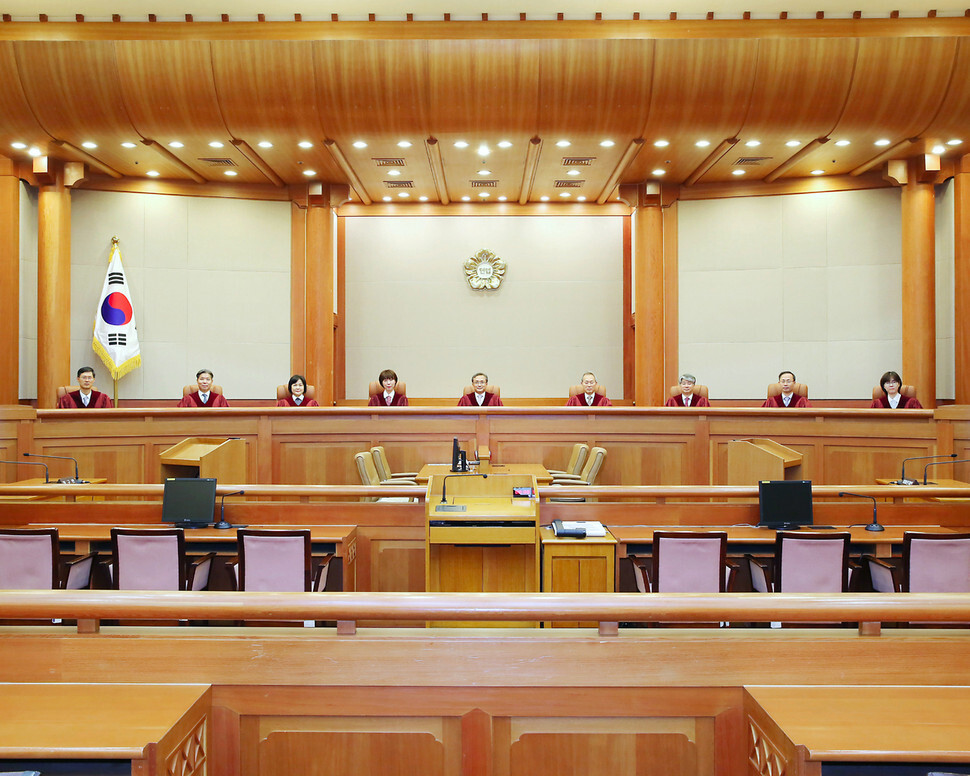 ” alt=”Constitutional Court Supreme Court decision.
” alt=”Constitutional Court Supreme Court decision. Constitutional Court Supreme Court decision. <한겨레 자료사진>
The Constitutional Court decided that the decree that Japan had owned property on the Korean peninsula during the Japanese colonial rule was constitutional after the fall of Japan. This is the first judgment by the Constitution to deal with the issue of disposing of Japanese property in the Liberation Administration. On the 3rd, the Constitution decided that all the provisions of the Military Administration Act of the US Army Command in the Republic of Korea (US Military Administration Act) that dealt with the disposition of property owned by Japanese citizens were “constitutional” with the unanimous opinion of the judges. The unconstitutional dispute against this provision came from the auction bid for a land in Jung-gu, Ulsan City in November 2016. Mr. A, who acquired the ownership of the land, filed a lawsuit for returning unfair profits, claiming that Jung-gu was continuing to use the land for roads. However, Jung-gu argued that the land was’state-owned property’ and that Mr. A and others had incorrectly inherited the land from those without ownership. On August 10, 1945, Amugae Kim, the former owner of the land for which Mr. A was a successful bid, purchased the land from a Japanese re-Korean, which was contrary to the laws of the US Military Government. As of August 9, 1945, the law stipulates that all transactions on property owned by Japanese are invalidated and that all property owned and managed by Japanese belong to the U.S. Military Government. Although Mr. Kim completed the transfer of ownership registration in September 1945, as of August 9, it was owned by Japanese, so it was a property that was prohibited from trading. Mr. A said that even though the U.S. Military Government Act was promulgated on September 25, 1945, it is against the prohibition of retroactive legislation, and the confiscation of property acquired by Japanese by Koreans violates the rule of surplus funding. Insisted. However, the Constitution decided that retrospective legislation was justifiable if there were serious’reasons in the public interest’. The Constitution said, “The public interest of preserving and transferring the property accumulated by the Japanese in Joseon under the illegal Korea-Japan merger treaty is against the Japanese re-Koreans who tried to dispose of private property on the Korean Peninsula and withdraw to the Japanese mainland, or those who bought property from them. It is much greater than the request for trust protection.” It seems that it is more important than protecting the property rights of Japanese people and those who traded with them at that time to redeem illegally accumulated property and return it to the Republic of Korea. August 9, 1945, which became the retrospective standard, was the day when the US dropped the atomic bomb on Nagasaki, the day when World War II ended and Japan’s defeat became clear. It is at a point in time that legal guarantees are uncertain about the disposition of Japanese property left on the Korean peninsula due to Japan’s defeat. The Constitution judged that even though there was confidence that Japanese possessions would be freely disposed of in such a confused situation, this was “not a trust worthy of constitutional protection.” The constitution judged that the public interest to be achieved through retrospect was obvious, since it was intended to hand over to the South Korean government to be established after Japan’s defeat and to freeze and prevent damage to Japanese property. By Jang Yeji, staff reporter [email protected]
